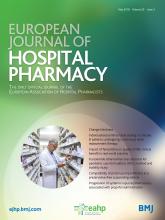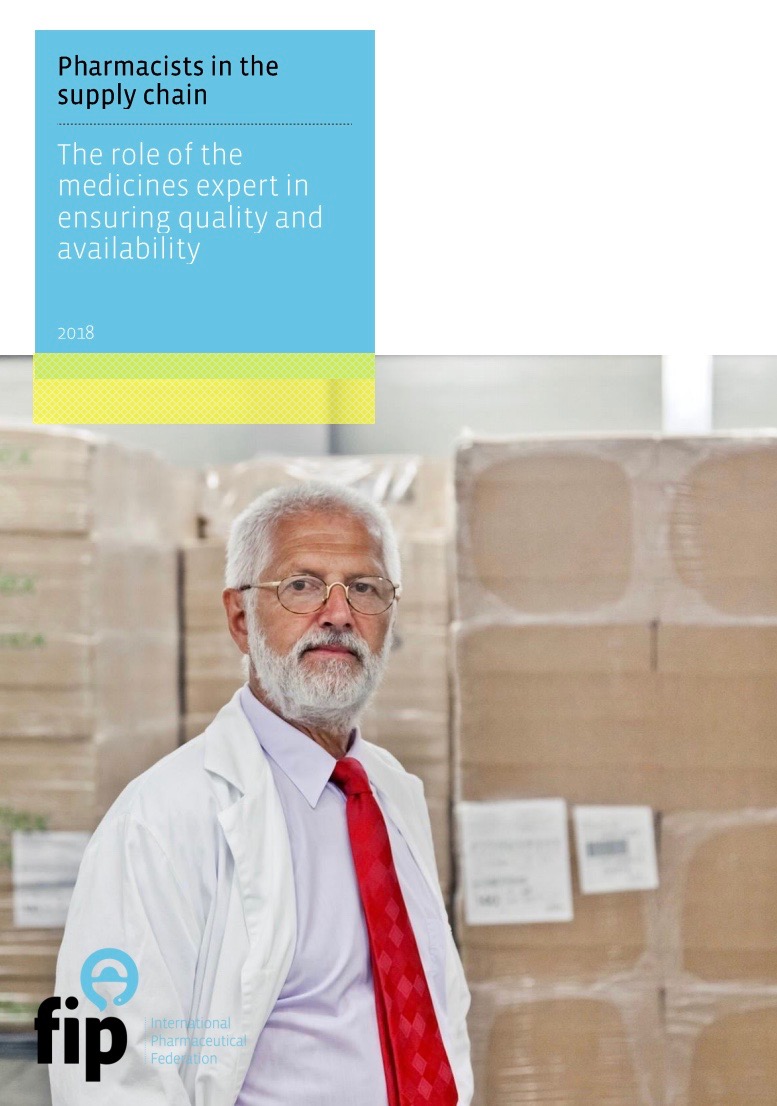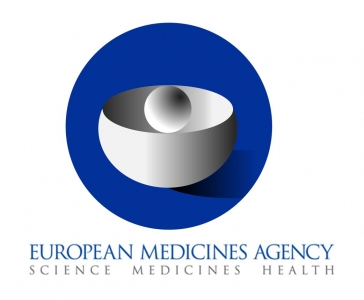EAHP EU Monitor - 24 May 2018
The EAHP EU Monitor is a regular round up of news relevant to hospital pharmacy in Europe.
You can subscribe to receive the EAHP EU Monitor by email HERE.

On 5th and 6th October 2018, the European Association of Hospital Pharmacists (EAHP) will be holding its first Synergy Masterclass on management and leadership. This newly developed Synergy event aims at providing healthcare professionals and industry professionals, regardless of their position, with continuing education on the most ground-breaking issues and most needed topics in the hospital setting.
Healthcare professionals participating in the Synergy Masterclass – Management & Leadership will explore innovative approaches to management and techniques that help with the development of individual team members. Through a mix of presentations and workshops each attendee will learn more about the elements that constitute management and leadership and be enabled to recognise applicable management levels. The practical elements of the Masterclass will trigger thinking about which approach to deploy in any given situation and allow for the direct application of tools and strategies.
Registration is open to both EAHP members and non-members interested in improving their management and leadership skills. The following fees apply:
- Non-Members € 400 (VAT excluded)
- EAHP Members € 200 (VAT excluded)
Don't miss the opportunity to join the first Synergy Masterclass. Registration for this 2-day event taking place in Brussels, Belgium is open until 10th August 2018. Sign up quickly since only limited seats are available!
In case you have questions please send an e-mail to registration[at]eahp[dot]eu for more information.
Registration HERE
Programme and more information HERE
 COST Action – survey on impact of medicines shortages on patients
COST Action – survey on impact of medicines shortages on patients
European Cooperation in Science and Technology (COST) Action member Darija Kuruc Poje is looking for support to complete her research activity on the impact of medicines shortages on patients for COST Action CA15105 - European Medicines Shortages Research Network - addressing supply problems to patients (Medicines Shortages).
Medicines shortages are a global problem which can significantly affect patients. Although the importance of the problem has been identified, no objective data is currently available on the patients impact. The survey by COST Action CA15105 tries to address this issue by quantifying the impact of medicines shortages at patient level in hospital environment.
Patients are encouraged to share their experience with medicines shortages by completing the short questionnaire by 1st December 2018. Questions in relation to this survey activity can be address by email to Darija Kuruc Poje (dakuruc[at]obkoprivnica[dot]hr).
Survey HERE
FIP – Pharmacists in the supply chain: the role of the medicines expert in ensuring quality and availability
On the 8th of May 2018, the International Pharmaceutical Federation (FIP) issued the report "Pharmacists in the supply chain: The role of the medicines expert in ensuring quality and availability". In the report, FIP viewed the role of pharmacists in the pharmaceutical supply chains, as inefficient pharmaceutical supply chains were recognised as a contributing factor to the lack of worldwide access to basic live-saving medicines.
The report stresses that the effort to increase the quality and efficacy of supply chains is an important contribution to achieve the United Nations' Sustainable Development Goals and universal health coverage. The role of pharmacists was analysed with the report providing an overview on the broad and unique competences of these healthcare professionals that are critical to supply chain integrity. As medicines expert's pharmacists have an essential role to play in the full range of activities of the supply chain.
Furthermore, the report offers a global overview of the roles of pharmacists in different supply chains in low-, middle-, and high-income countries, and describes their evolution. It does not aim to depict a single system which all countries should strive to incorporate. However, the report highlights the fact that the ultimate goal of all systems should be to ensure efficient supply of quality medicines – offering the right medicine, at the right time, to the right patient. Moreover, it underlines that globalisation has a direct effect on the supply chain itself, adding complexities to that goal. Investments should be made in the education and training of pharmacists to promote their involvement in the supply chain.
Evidence presented in the report was gathered through literature reviews, survey data, and case studies of nine countries with different supply chain structures. Next to the recognition of the importance of pharmacists' involvement in the supply chain, a comprehensive and detailed definition of the supply chains together with the integrity of it in relation to global health and descriptions of competencies (both general and pharmacists') are included in the report.
Read the report HERE
 WHO - list of essential diagnostic tests
WHO - list of essential diagnostic tests
The World Health Organisation (WHO) published its first ever list of essential diagnostic tests. The document catalogues the 113 most critical categories of diagnostics for common and priority diseases to improve diagnosis and treatment outcomes.
The list of essential diagnostic tests aims at providing guidance and reference to develop and/or update lists of national essential in vitro diagnostics. It was developed through extensive consultation and reviewed by WHO's Strategic Advisory Group of Experts on In-Vitro Diagnostics – a group of 19 experts with global representation. The final document comprises a group of general laboratory tests to be used for common conditions as well as a of a group of tests designed for the detection, diagnosis and monitoring of "priority" diseases such as HIV, tuberculosis, malaria, hepatitis B and C, human papillomavirus and syphilis.
Similar to the WHO's essential medicines list which was released in the 1970s and serves as a reference for health authorities around the world to guide procurement decisions for critical drugs also the list of essential diagnostic tests will be revised on a regular basis. Future editions of the list of essential diagnostic tests will include antimicrobial resistance, neglected tropical diseases, noncommunicable diseases and emerging pathogens. Support will be provided by WHO to countries adapting the list to the local context.
Access the list of essential diagnostic tests HERE
News from the European Medicines Agency (EMA)
This month's EMA communications feature recommendations from the Pharmacovigilance Risk Assessment Committee (PRAC) on the suspension of hydroxyethyl-starch (HES) solutions for infusion in the EU and measures to minimise risk of rare but serious liver injury with Esmya for fibroids, information about EMA's review of Zinbryta as well as study results on the HIV medicine dolutegravir.
PRAC recommendations
PRAC confirmed the suspension of the marketing authorisations for hydroxyethyl starch (HES) solutions for infusion. This decision was rendered after an additional inquiry by the European Commission following PRAC's initial recommendation issued in January 2018. The European Commission requested PRAC to consider whether suspending the marketing authorisations could result in an unmet medical need. In addition PRAC was asked to reflect on the feasibility and likely effectiveness of additional risk minimisation measures.
More information HERE
PRAC has completed its review of Esmya (ulipristal acetate), following reports of serious liver injury. After considering all the evidence, it was concluded that the medicine must not be used in women with liver problems and that certain other patients may start new treatment courses provided they have regular liver tests. Temporary recommendations have already been released in February 2018, while the review was still ongoing.
The PRAC's recommendations will now be forwarded to the Committee for Medicinal Products for Human Use (CHMP) for the adoption of EMA's final opinion. After, a final legal decision will be taken by the European Commission.
More information HERE
EMA's review of Zinbryta
PRAC has confirmed that the multiple sclerosis medicine Zinbryta (daclizumab beta) poses a risk of serious and potentially fatal immune reactions affecting the brain, liver and other organs. It is consequently no longer authorised and has been recalled from hospitals and pharmacies.
Patients could be at risk from the start of treatment and for several months after stopping treatment, and it is not possible to predict which patients will be affected. The PRAC therefore confirmed its previous conclusions that risks of Zinbryta outweigh its benefits for patients with multiple sclerosis. Healthcare professionals should continue monitoring patients who have been treated with Zinbryta in line with recommendations issued in March 2018.
More information HERE
Study results: HIV medicine dolutegravir
The EMA is currently analysing the preliminary results from a study which found 4 cases of birth defects such as spina bifida (malformed spinal cord) in babies born to mothers who became pregnant while taking dolutegravir. As the evaluation is still ongoing EMA released the following precautionary advice:
- Dolutegravir HIV medicines should not be prescribed to women seeking to become pregnant.
- Women who can become pregnant should use effective contraception while taking dolutegravir medicines.
Women who have been prescribed dolutegravir should not stop taking their medicine without first consulting their doctor.
EMA will update the recommendations as necessary when it concludes its assessment.
More information HERE
 EJHP: Mixed methods study of medication-related decision support alerts experienced during electronic prescribing for inpatients at an English hospital
EJHP: Mixed methods study of medication-related decision support alerts experienced during electronic prescribing for inpatients at an English hospital
The article published in the European Journal of Hospital Pharmacy's (EJHP's) online first edition provides information about a mixed methods study carried out on three cardiology wards, directly observing medical and non-medical prescribers' alert override. The results of this study showed that 69% of alerts were overridden. Conclusions drawn suggest that alerts may be less likely to be overridden if they are built into the prescribing workflow.
Read article HERE
------------------------------------------------------------------------------------------------

Consultations
EMA - Questions and answers on Bovine Spongiform Encephalopathies (BSE) and vaccines
The document contains an update of the information in the Public Statement on the Evaluation of Bovine Spongiform Encephalopathies (BSE). Since 2001, understanding of the risks associated with BSE has progressed significantly and a routine review of EMA guidelines identified this document as requiring updating. It includes information on the use of bovine derived materials in vaccine manufacture.
Deadline – 31st July 2018
More information HERE
EMA- Guideline on quality aspects included in the product information for vaccines for human use
The guideline describes the information on the quality aspects to be included in the Product Information of vaccines for human use.
Deadline – 31st July 2018
More information HERE
EMA- Reflection paper on investigation of pharmacokinetics and pharmacodynamics in the obese population
The reflection paper aims at describing how the effects of obesity can be investigated during clinical drug development, providing recommendations on when investigations of the effect of obesity on the PK of a drug should be considered, providing information on specific important considerations for these investigations and discussing how to reflect PK findings in weight/size based dosing recommendations.
Deadline – 31st July 2018
More information HERE
EMA- Draft addendum to the guideline on the evaluation of medicinal products indicated for treatment of bacterial infections to address paediatric-specific clinical data requirements
This addendum to the Guideline has been developed to provide specific guidance on paediatric clinical development programmes that are required to support the authorisation of antibacterial agents for treatment of infectious diseases in paediatric patients. This Addendum provides guidance on clinical data requirements to support the approval of an antibacterial agent to treat infectious diseases in paediatric patients, both when extrapolation of efficacy from adults (source population) to paediatric patients (target population) is possible, and when this is not the case.
Deadline – 30th August 2018
More information HERE
EMA- Draft guideline on clinical evaluation of vaccines
This guideline addresses the clinical evaluation of vaccines intended for the prevention of infectious diseases. It includes considerations for trials intended to document the safety, immunogenicity and efficacy of new candidate vaccines and to support changes in the prescribing information of licensed vaccines. It also considers the need for and use of vaccine effectiveness studies.
Deadline – 30th October 2018
More information HERE






